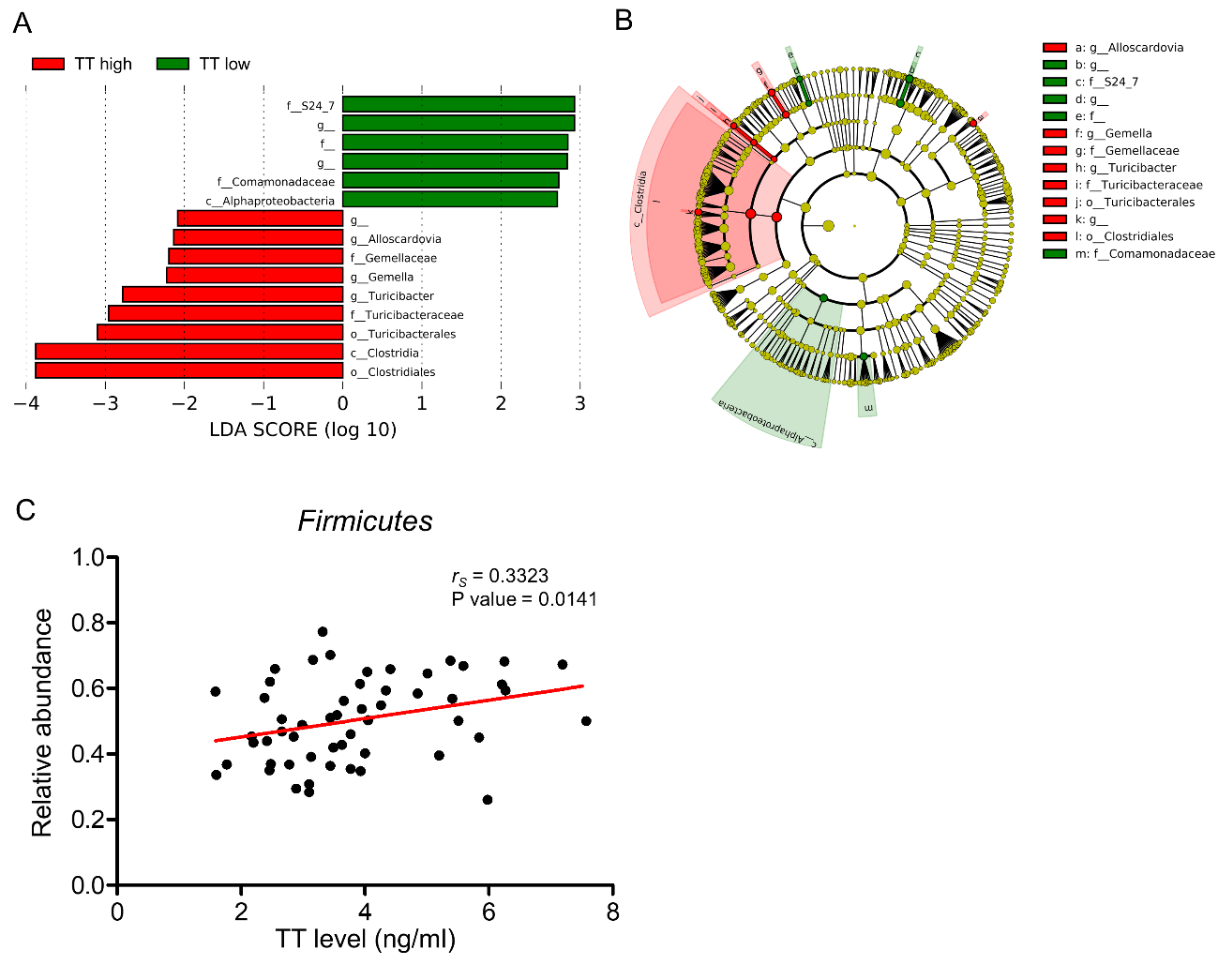Back
Poster, Podium & Video Sessions
Moderated Poster
MP38: Sexual Function/Dysfunction: Basic Research & Pathophysiology
MP38-14: Gut microbiome associated with blood testosterone levels in elderly men
Sunday, May 15, 2022
7:00 AM – 8:15 AM
Location: Room 222
Kazutoshi Fujita*, Osakasayama, Japan, Makoto Matsushita, Koji Hatano, Suita, Japan, Mitsuhisa Nishimoto, Osakasayama, Japan, Daisuke Motooka, Suita, Japan, Eri Banno, Osakasayama, Japan, Junya Hata, Fukushima, Japan, Takafumi Minami, Masahiro Nozawa, Osakasayama, Japan, Shota Nakamura, Suita, Japan, Akira Tsujimura, Urayasu, Japan, Wataru Obara, Morioka, Japan, Kazuhiro Yoshimura, Hirotsugu Uemura, Osakasayama, Japan, Norio Nonomura, Suita, Japan
- KF
Kazutoshi Fujita, MD
Kindai University Faculty of Medicine
Poster Presenter(s)
Introduction: Testosterone levels have been implicated in a variety of male diseases, such as hypogonadism and sexual funciton. Patients with high-grade prostate cancer had a unique microbiota composition, suggesting that intestinal bacteria could influence the prostate cancer progression via testosterone metabolism. In this study, we determined the relationship between testosterone levels and gut microbiota.
Methods: Fifty-four Japanese men who had negative prostate biopsies were included in the study. The gut microbiota was analyzed by 16S rRNA gene sequencing of bacterial DNA extracted from rectal swabs. The gut microbiota compositions were compared in two groups according to serum testosterone levels above or below 3.5 ng /ml.
Results: No significant difference in alpha or beta diversity was observed, but some bacteria belonging to the phylum Firmicutes (Clostridiales, Turicibacter, and Gemella) were increased in the high testosterone group. Serum testosterone level were positively correlated with the relative amount of Firmicutes (rS = 0.33, P = 0.01), and Firmicutes amount affected serum testosterone levels independent of host factors (Age, BMI, triglyceride, and total cholesterol (ß = 0.770, P = 0.040)).
Conclusions: These results suggest that some intestinal bacteria belonging to phylum Firmicutes influence the testosterone metabolism of elderly men and may affect the pathology of various testosterone-induced diseases, especially male hypogonadism.
Source of Funding: Kaken, Yakulto-Bioscience, Japanese Urological Association

Methods: Fifty-four Japanese men who had negative prostate biopsies were included in the study. The gut microbiota was analyzed by 16S rRNA gene sequencing of bacterial DNA extracted from rectal swabs. The gut microbiota compositions were compared in two groups according to serum testosterone levels above or below 3.5 ng /ml.
Results: No significant difference in alpha or beta diversity was observed, but some bacteria belonging to the phylum Firmicutes (Clostridiales, Turicibacter, and Gemella) were increased in the high testosterone group. Serum testosterone level were positively correlated with the relative amount of Firmicutes (rS = 0.33, P = 0.01), and Firmicutes amount affected serum testosterone levels independent of host factors (Age, BMI, triglyceride, and total cholesterol (ß = 0.770, P = 0.040)).
Conclusions: These results suggest that some intestinal bacteria belonging to phylum Firmicutes influence the testosterone metabolism of elderly men and may affect the pathology of various testosterone-induced diseases, especially male hypogonadism.
Source of Funding: Kaken, Yakulto-Bioscience, Japanese Urological Association


.jpg)
.jpg)